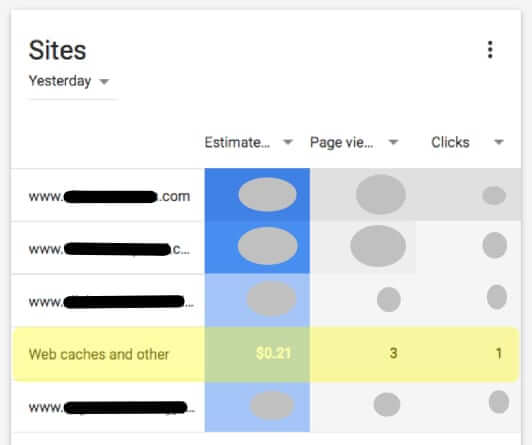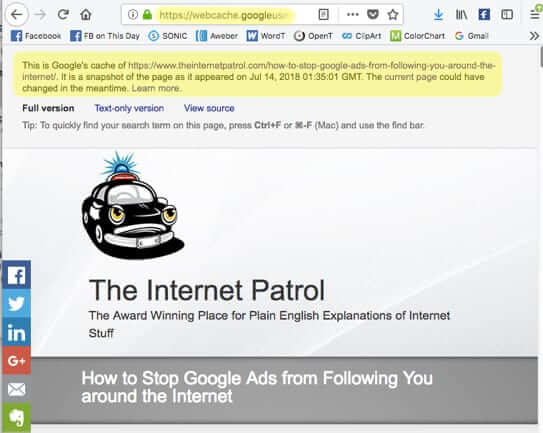
Google Adsense and Google Adwords are the programs that place all of those ‘Ads by Google’ that you see on websites (including this one). Google Adsense is the part of the programs that website publishers take part in to display the ads on their website.
Google Adwords is the part of the programs in which advertisers participate to get their ads onto the websites. If you’re reading this article, the odds are that you are a Google Adsense publisher, and you’ve seen a line item on your Adsense report reading “Web caches and other” and are wondering just what the hell it means. So, here’s what that “Web caches and others” refers to.
Web Caches and Others Line in Adsense Report
The “Web caches and others” refers to basically any “site” (you’ll see why we put it in quotes in a moment) that is publishing your content and/or Adsense ads that is not your actual site or a site you have authorized to publish your Adsense ads or your content, or duplicate your site. Because they are duplicating it completely, the Adsense code contains your Adsense publisher ID, so any clicks on those ads are still credited to you. This includes, for example, Google’s own caches of your pages. So, for example, let’s say you Google ‘how to stop google ads from following you around’, and this is one of the results:
The Internet Patrol is completely free, and reader-supported. Your tips via CashApp, Venmo, or Paypal are appreciated! Receipts will come from ISIPP.
If you just click on the title in the search results it will take you to our article, How to Stop Google Ads from Following You around the Internet.
But if you click on that drop-down arrow:
..you are offered Google’s cached version of the article.
And clicking on ‘Cached’ takes you to Google’s cached version of the article.
Cached version of The Internet Patrol on Google’s Server
So any time any other place (search engines, for example, or archive.org (which archives much of the entire free Internet)) makes available a copy of one of your web pages, if someone clicks on your Adsense ads from within that copy (which is not on your website), it shows up in your Adsense report as a click on a web cache or other ..something. In this case Google Adsense seems to be using ‘other’ as a noun.
This is a reason that some website publishers use the meta-tag “noarchive” which instructs search engines such as Google not to archive their sites. The cons of allowing search engines to archive your site, the thinking goes, include the above “Web caches and others” matter (if you care about that) and that any time someone goes to the Google or other cache copy of your site, they are not going to your site. In other words, your site is being deprived of that traffic.
On the other hand, by allowing search engines to archive your site, people will still be able to see your content if your site goes down, and you will still be able to recover (at least some of) your content if it gets blown away for some reason.
For a fairly comprehensive discussion of to noarchive or not to noarchive, and particularly in this context, see this thread on Webmasterworld.com.
The Internet Patrol is completely free, and reader-supported. Your tips via CashApp, Venmo, or Paypal are appreciated! Receipts will come from ISIPP.













